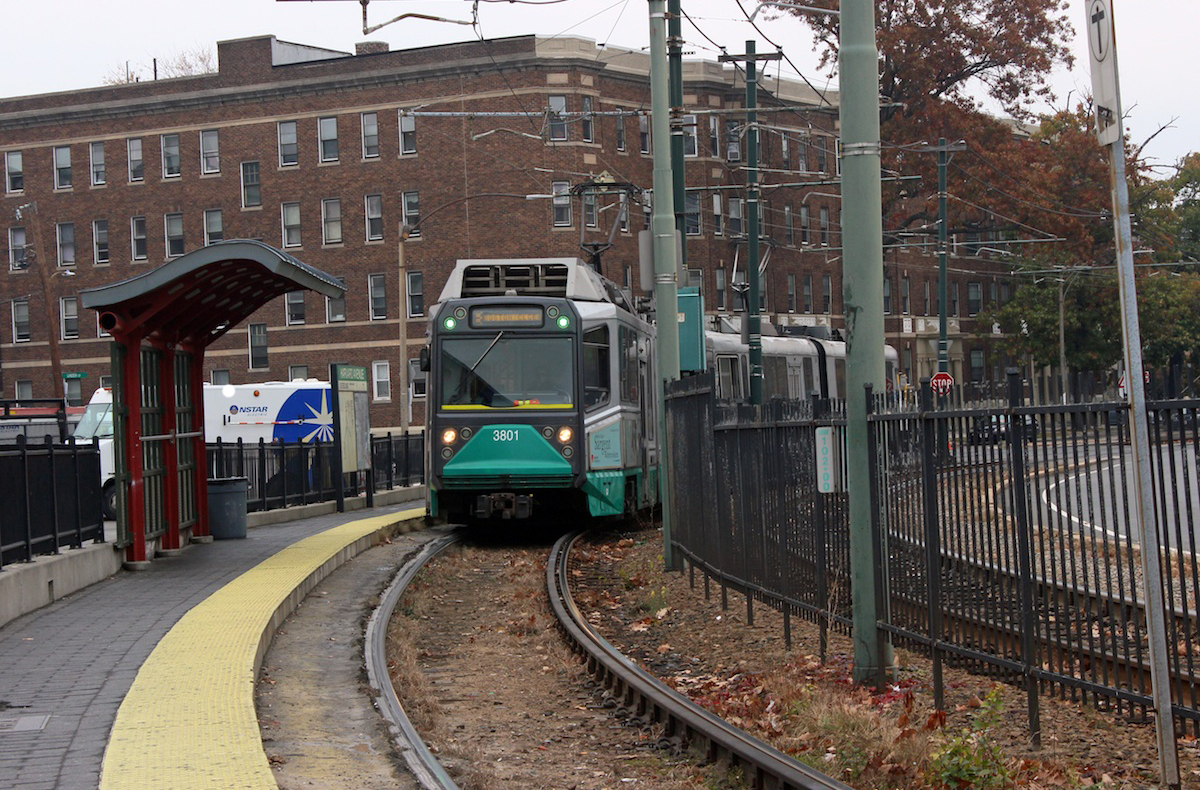New Harvard Report Paints Bleak Picture of MBTA’s Future

Photo By Olga Khvan
A new report from Harvard Kennedy School scholar Charles Chieppo is the latest in a series of reports to depict the MBTA as a public agency mired in decades of debt, mismanagement, and neglect.
In Transforming the T: How MBTA Reform Can Right Our Broken Transportation System, Chieppo paints a bleak picture of Greater Boston’s most important piece of infrastructure, but does provide a glimmer of hope that reform can save it. “The MBTA didn’t become a mess overnight, and decades of deterioration will take time to reverse,” concludes Chieppo.
Three key areas of reform for Chieppo: the MBTA’s culture, fares, and expansion.
Chieppo argues that one of the key problems facing the MBTA is its failure to provide a pleasant experience for riders in the most basic sense: customer service. From basic things like working HVAC systems to functioning wi-fi to pleasant employees, the MBTA falls short.
The MBTA should establish a set of customer-service focused metrics, put them on the T website, and constantly update the system’s performance. Among the metrics could be on-time performance and a “passenger comfort index” based on things like the percentage of vehicles with working heat, air conditioning, and Wi-Fi.
When it comes to fares, the MBTA does not do enough to make riders subsidize their travel. The MBTA’s farebox recovery rate is 40 percent, just below the typical level of big city transportation systems. Chieppo thinks it would be better for the MBTA to recover around 45 percent.
Achieving this goal would reduce the T’s annual deficit by more than $60 million. Regular, modest fare increases will be required to increase the fare recovery ratio.
The MBTA’s expansion has created additional problems and, in Chieppo’s view, should be halted unless legally mandated like the Green Line Extension.
Given the MBTA’s dire finances and recent history of aggressive expansion, no major expansion projects should be undertaken beyond those required by law (such as the troubled Green Line extension) until the state of good repair backlog is eliminated.
When expansion projects are undertaken, budgets should be based on construction, operating, and maintenance costs over the project’s lifecycle, not just construction costs.
Some have question Chieppo’s assessment of the MBTA’s expansion rate, however, including Tony Dutzik of the Frontier Group. Chieppo has maintained for over a year that the MBTA has expanded at a rate that far outpaces other transit agencies in the United States.
Read Chieppo’s entire report here if you want to feel even more depressed about the future of the MBTA.


